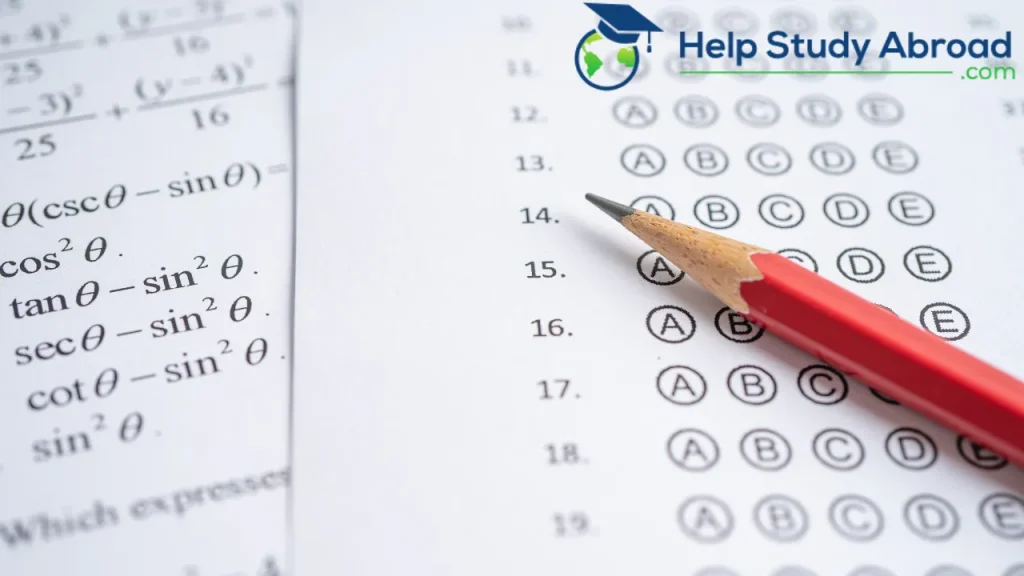Mastering GMAT Quant: A Comprehensive Guide
The GMAT Quant section is one of the most important sections in determining your overall GMAT score. It tests your mathematical, analytical, and problem-solving skills, which are necessary for success in business schools and professional careers. To do well , you need structured preparation, a good understanding of the syllabus, and consistent practice. This article guides you through the GMAT Quant syllabus, resources, and strategies to ensure your success.
What is GMAT Quant?
The GMAT Quant section evaluates your understanding of algebra and arithmetic fundamentals, assessing your ability to apply this knowledge effectively in problem-solving scenarios. Problem Solving which requires you to apply basic mathematical concepts to solve problems.
GMAT Quant Syllabus Summary
| Section | Number of Questions | Key Topics | Time Allotted |
| Quantitative Reasoning | 21 | Problem Solving (Algebra and Arithmetic) | 45 minutes |
The GMAT Quant syllabus consists of two broad areas:
| Arithmetic | Algebra |
| Averages | Linear Equations |
| Percentages | Quadratic Equations |
| Ratio and Proportion | Inequalities |
| Profit, Loss, and Discounts | Functions |
| Mixtures and Allegations | Logarithms |
| Time, Speed, Distance, and Work | Elements of Algebra |
Knowing the syllabus will let you know your strengths and weaknesses.
Important GMAT Quant Topics
Here are some of the key topics in GMAT Quant:
👉Algebraic Questions
These questions test your ability to understand and apply various algebraic concepts, including:
- Inequalities: Solve and interpret inequalities.
- Functions: Understand and manipulate mathematical functions.
- Quadratic Equations: Solve quadratic equations and interpret their solutions.
- Linear Equations: Work with linear equations and systems of equations.
- Word Problems: Translate real-world scenarios into mathematical expressions and solve them.
- Absolute Values: Solve equations and inequalities involving absolute values.
- Sequences: Analyze arithmetic and geometric sequences.
- Statistics: Understand basic statistical measures and apply them to problem-solving.

Here is a bar graph showing the frequency distribution of different concepts in the GMAT Quantitative section.
👉Arithmetic Questions
These questions focus on core arithmetic concepts, such as:
- Roots and Exponents: Solve problems involving square roots, cube roots, and exponents.
- Ratios and Percentages: Calculate and interpret ratios, proportions, and percentages.
- Number Systems: Understand properties of integers, prime numbers, and other number types.
- Fractions and Decimals: Perform operations involving fractions and decimal numbers.
- Operations: Apply basic arithmetic operations and their properties.
Weightage in GMAT Quant Topic wise
Knowing the topic-wise weightage helps you to focus on your study plan. Though GMAT does not release the weightage details, the following estimates may be helpful:
| Topic | Weightage |
| Arithmetic | 40% |
| Algebra | 30% |
| Geometry | 20% |
| Statistics | 10% |
Arithmetic and algebra are to be given more importance since they hold a higher weight in the exam.
Recommended Books for GMAT Quant Preparation
Recommended Books are :
➢GMAT Official Guide by GMAC: This is an authentic source of questions with explanations.
➢Manhattan Prep GMAT Quant Strategy Guide: Offers extensive coverage of topics with practice questions.
➢Kaplan GMAT Math Workbook: Perfect to build a foundation.
GMAT Quant Formula Sheet:
It helps you quickly revise your mind with formulas such as geometry formulas, algebraic identities, or probability rules. Always keep the personalized formula sheet ready with you for last-minute revision.
GMAT Quant Cheat Sheet:
A cheat sheet represents shortcuts, tips, or tricks on solving complex problems in a little amount of time. Its one useful time-saving means for an exam.
How To Prepare
The way to prepare your mind is practice. Prepare for the test with one of these steps:
👉Practice Questions
Solve GMAT quant practice questions to improve all topics under its headstrong. Try the easy question and slowly proceed to an advanced one.
GMAT quant mock tests simulate the real exam environment. They help you assess your speed, accuracy, and time management skills. Analyze your performance after each test to identify areas for improvement.
“The will to win is important, but the will to prepare is vital”
👉Use Timed Practice
Practice solving questions within a set time limit to build speed and ensure you can complete the section on time during the exam.
Creating an Effective Study Plan for GMAT Quant
A structured study plan helps in regular progress. Here is a sample study plan:
➢Week 1-2: Concentrate on arithmetic and algebra. Attempt related practice questions daily.
➢Week 3-4: Revise geometry and statistics. Focus on arithmetic.
➢Week 5: Attempt full-length GMAT quant mock tests and review your performance.
➢Final Week: Revise with the help of GMAT quant formula sheets and cheat sheets. Focus on the weak areas that come out of mock tests.
Split your preparation time into learning concepts, solving questions, and reviewing mistakes.

Common Mistakes to Avoid
Jumping directly to the advanced questions without mastering the basics. Master your fundamentals before advancing to the complex questions.
Spending too much time on a single question without knowing when to move on to save some time for the rest of the section. Learn to let go if a question is taking too long.
➢Using Guesswork
Random guessing may reduce your accuracy. Apply elimination techniques to make smart guesses when necessary.
➢Omission of Practice
Practice regularly is important. Skipping practice may reduce your confidence level while taking the test.
Conclusion
The GMAT Quant section is an essential part of your GMAT journey. With a knowledge of the syllabus, with regular practice, and an ideal resource such as books, formulae sheets, and cheat sheets, you can easily obtain the required target score. Stay focused, make proper preparation, and attack the exam with confidence.
FAQ,s
Q1: Which GMAT quant book is best for beginners?
The Kaplan GMAT Math Workbook is ideal for beginners due to its clear explanations and step-by-step guidance.
Q2: How many GMAT quant mock tests should I take?
Aim to take at least 5-7 mock tests to build familiarity with the exam format and improve time management.
Q3: Are GMAT quant cheat sheets useful?
Yes, cheat sheets summarize key formulas and shortcuts, making them useful for quick revision.
Q4: How much time should I dedicate to GMAT quant preparation?
Dedicate 2-3 months, depending on your current proficiency. Allocate at least 2 hours daily for consistent practice.
Q5: Is GMAT Quant easier than CAT?
The difficulty level of GMAT Quant in comparison to CAT Quant differs from person to person and according to their preparation. GMAT Quant emphasizes problem-solving and reasoning skills with a much smaller set of concepts, whereas CAT Quant deals with a broader syllabus with more complex topics and challenging word problems. GMAT Quant tends to be more logically focused, but CAT Quant has more complex, advanced, and varied topics that make it seem more daunting. Both require time management, but the approach and subject tested are different.



